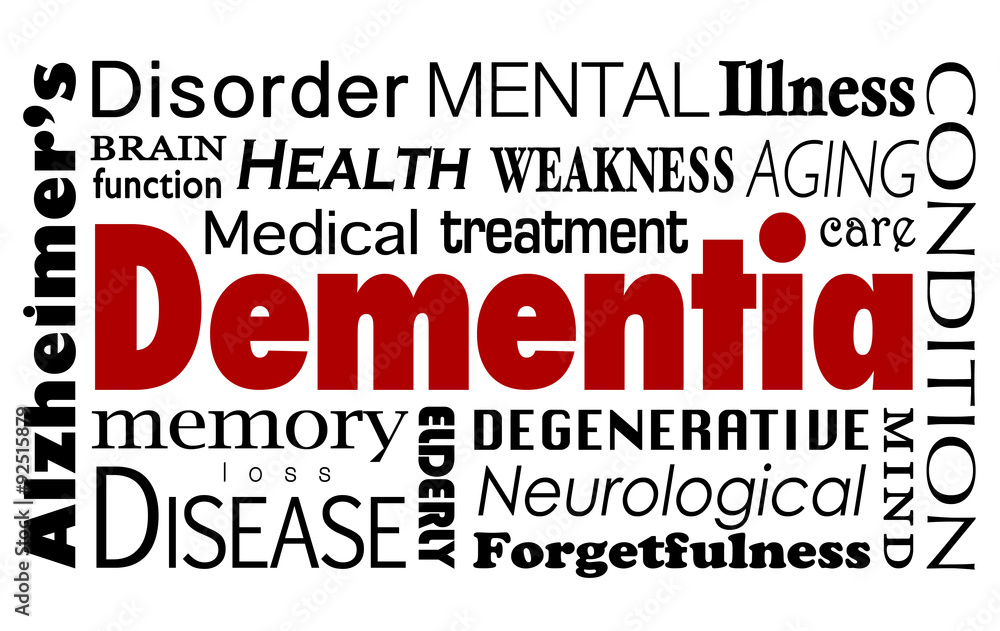Understanding Dementia: Types, Risk Factors, and Recognizing Signs and Symptoms
* Understanding Dementia Symptoms
Dementia is a progressive decline in cognitive function, which affects a person's ability to perform everyday activities. It is a term used to describe a group of symptoms that can include memory loss, difficulty communicating, problems with everyday tasks, disorientation and changes in mood and behavior. Dementia is a serious condition that affects millions of people worldwide and can have a significant impact on the lives of those affected and their families.
* Types of Dementia
> Alzheimer's Disease
This is the most common form of dementia and accounts for 60-80% of cases. It affects the brain by destroying cells and damaging the connections between them, leading to memory loss, changes in mood, and difficulty with everyday tasks.
> Vascular Dementia
This type of dementia is caused by problems with the blood supply to the brain, such as a stroke. It often leads to a sudden decline in cognitive function and can also cause problems with movement and coordination. > Lewy Body Dementia
This type of dementia affects the nerve cells in the brain and can cause symptoms such as visual hallucinations, problems with movement, and changes in alertness and attention. It can also lead to difficulties with memory and decision making.
> Frontotemporal Dementia
This type of dementia affects the front and sides of the brain, leading to changes in behavior and personality, difficulty with language, and problems with decision making and planning. > Mixed Dementia
This is a combination of two or more types of dementia and can have symptoms of Alzheimer's disease, vascular dementia, and Lewy body dementia.
* Risk Factors
> Age
The risk of developing dementia increases with age. Most people with dementia are over the age of 65.
> Genetics
There is a genetic component to some types of dementia, and a family history of the condition increases the risk
> Medical conditions
Certain medical conditions, such as high blood pressure, heart disease, and diabetes, can increase the risk of developing dementia.
> Lifestyle factors
Smoking, heavy alcohol consumption, and a diet high in saturated fat can increase the risk of developing dementia.
* Recognizing Signs and Symptoms
> Memory loss
Difficulty remembering recent events or conversations, or forgetting familiar names or places. > Communication difficulties
Struggling to find the right words, repeating oneself, or becoming withdrawn and uncommunicative. > Problems with everyday tasks
Struggling to carry out simple tasks, such as cooking, shopping, or managing finances. > Disorientation
Getting lost in familiar places, not knowing the time or date, or becoming confused about one's surroundings. > Changes in mood and behavior
Becoming easily agitated or angry, withdrawing from social activities, or exhibiting unusual behavior.
If you or someone you know is exhibiting symptoms of dementia, it is important to seek medical advice as soon as possible. Early diagnosis and treatment can help to manage the symptoms and improve the quality of life for those affected.
 |
| You Need to Know About Dementia // Freepik |
R E A D : Navigating Nevoid Basal Cell Carcinoma Syndrome (NBCCS): Understanding the Causes, Symptoms, and Treatment Options.
There is currently no cure for dementia, but treatments are available to help manage the symptoms and slow down the progression of the disease. Treatment options may include medications to improve brain function and manage behavioral symptoms, as well as therapies such as occupational therapy, speech therapy, and psychological support. It is also important for individuals with dementia and their families to access support services, such as respite care, support groups, and counseling. This can help to manage the emotional impact of the condition and improve the quality of life for everyone involved. * Prevention While there is no guaranteed way to prevent dementia, there are steps that can be taken to reduce the risk. These may include:
> Keeping the brain active
Engaging in mentally stimulating activities, such as reading, writing, and playing games, can help to keep the brain active and healthy.
> Staying physically active
> Eating a healthy diet
> Managing medical conditions
dementia is a serious condition that can have a significant impact on the lives of those affected and their families. It is important to recognize the signs and symptoms and seek medical advice as soon as possible. With proper treatment, support, and lifestyle changes, individuals with dementia can manage their symptoms and improve their quality of life.
R E A D : Navigating Schizophrenia Causes Symptoms and Treatment Options.


No comments:
Post a Comment